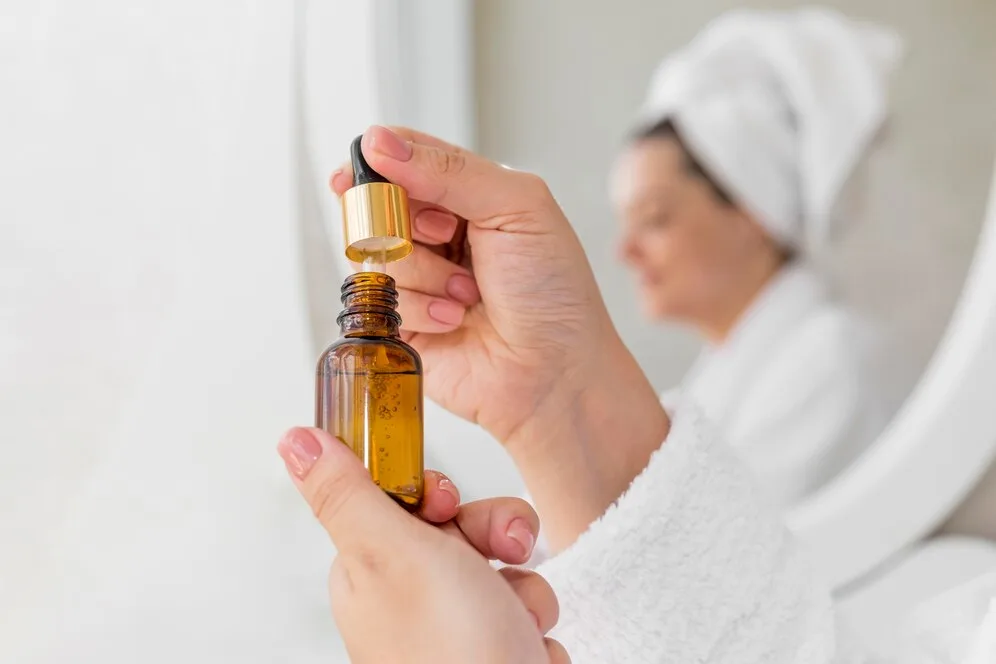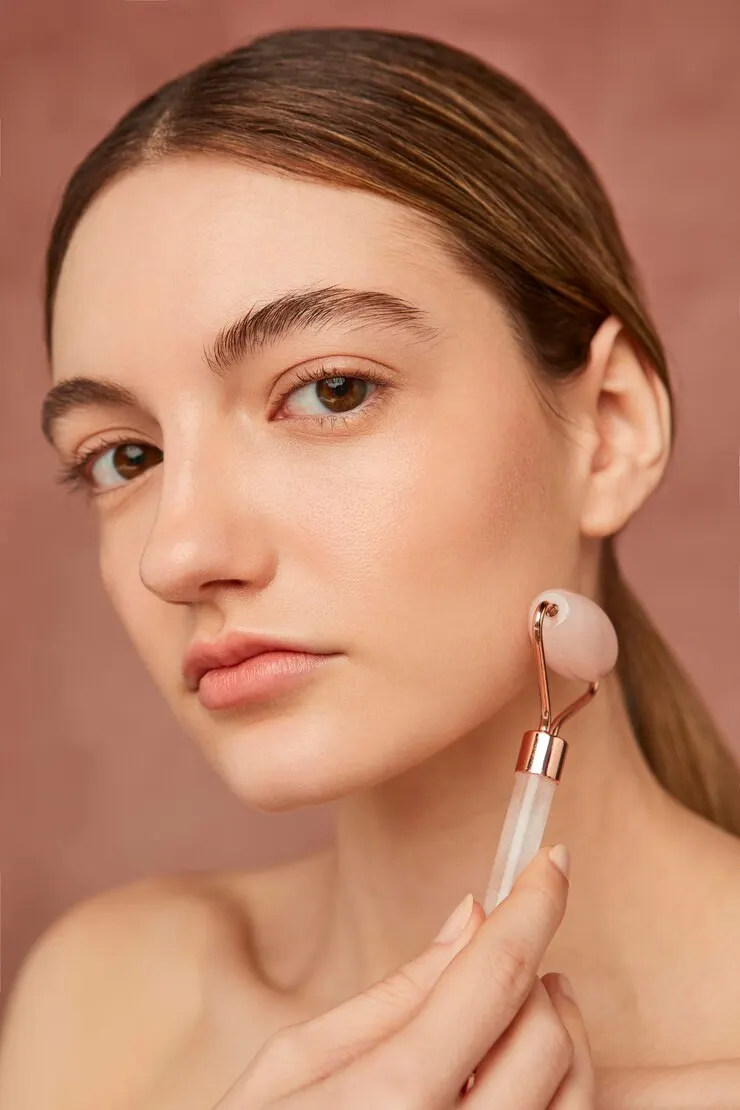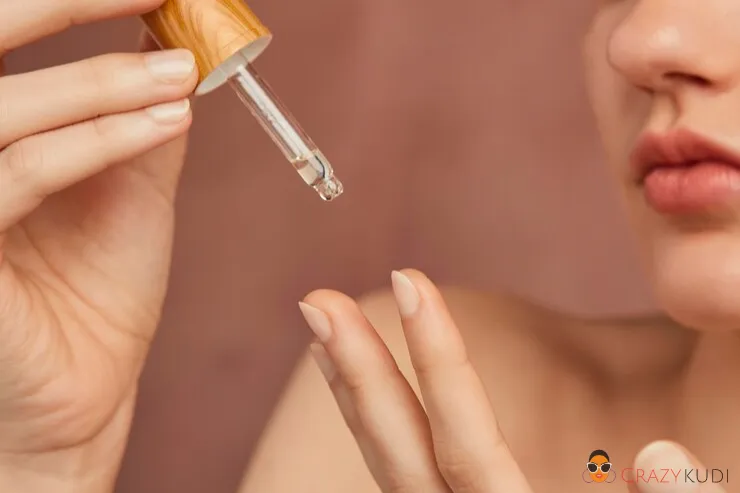In the ever-evolving world of skincare, few ingredients have maintained their superstar status quite like vitamin C. This powerhouse antioxidant has become a non-negotiable step in many skincare routines, and for good reason. From brightening dull complexions to fighting free radical damage, the best vitamin C serum can transform your skin in ways that few other ingredients can. But with countless options flooding the market, how do you find the perfect formula for your unique skin needs? This comprehensive guide will help you navigate the world of vitamin C serums to discover your ideal match.
Why Vitamin C Deserves a Place in Your Skincare Routine
Before diving into product recommendations, let's understand what makes vitamin C such a coveted skincare ingredient:
Powerful Antioxidant Protection
The best vitamin C serum for face provides potent antioxidant protection against environmental aggressors like pollution, UV radiation, and other free radicals that contribute to premature aging. By neutralizing these damaging molecules, vitamin C helps preserve your skin's youthful appearance.
Brightening and Evening Skin Tone
Vitamin C is renowned for its ability to fade hyperpigmentation, dark spots, and post-inflammatory marks. A good vitamin C serum can significantly improve skin tone uniformity and restore radiance to dull complexions.
Collagen Production Boost
As we age, our natural collagen production declines, leading to fine lines and loss of firmness. Vitamin C plays a crucial role in collagen synthesis, helping to maintain skin's structural integrity and youthful bounce.
Enhanced Sun Protection
While not a replacement for sunscreen, vitamin C complements your SPF by providing an additional layer of defense against UV damage. The best rated vitamin C serum paired with daily sunscreen creates a powerful shield against photoaging.
Hydration and Barrier Support
Many top vitamin C serum for face formulations incorporate hydrating ingredients that help maintain skin moisture levels while strengthening the skin barrier.
Also read: Hyaluronic Acid: The Moisture Miracle Your Skin Needs
Types of Vitamin C in Skincare: Finding the Right Form
Not all vitamin C formulations are created equal. Understanding the different forms can help you select the best vit C serum for your specific needs:
L-Ascorbic Acid (LAA)
This is pure vitamin C in its most potent form. The best vitamin C for face serum often contains L-ascorbic acid at concentrations between 10-20%. It's highly effective but can be unstable and potentially irritating for sensitive skin types.
Sodium Ascorbyl Phosphate (SAP)
A water-soluble, stable derivative that converts to ascorbic acid once absorbed. Good vitamin C face serum formulations with SAP are generally gentler on sensitive skin while still delivering impressive results.
Magnesium Ascorbyl Phosphate (MAP)
Another stable vitamin C derivative that's well-tolerated by most skin types. Many good vit C serum options feature this form for its gentleness and effectiveness.
Ascorbyl Palmitate
A fat-soluble vitamin C ester that offers good stability and penetration. Some of the best rated vit C serum products contain this form for its compatibility with oily and combination skin types.
Tetrahexyldecyl Ascorbate (THDA)
An oil-soluble vitamin C ester with excellent stability and skin penetration. Many great vitamin C serum formulations include THDA for its ability to reach deeper skin layers.

What Makes a Vitamin C Serum Effective: Key Factors
When evaluating serum for face vitamin C options, several factors determine quality and efficacy:
Concentration
Effective vitamin C concentrations typically range from 10-20% for L-ascorbic acid formulations. The best vitamin CE serum products often contain 15-20% for maximum benefits without excessive irritation risk.
pH Level
For L-ascorbic acid to penetrate properly, the formula needs a pH below 3.5. This acidic environment ensures optimal absorption but may cause sensitivity for some users.
Formulation Stability
Vitamin C can be notoriously unstable, oxidizing when exposed to air, light, and heat. The best vitamin C serums utilize stabilizing ingredients like ferulic acid and proper packaging to maintain potency.
Supporting Ingredients
Look for complementary antioxidants like vitamin E and ferulic acid, which enhance vitamin C's effectiveness. Many vest vitamin C serum options (referring to the best vitamin C serums) include this powerful antioxidant trio.
Packaging
Dark or opaque bottles protect the formula from light degradation. Airless pumps further prevent oxidation by minimizing air exposure. The nest vitamin C serum options (meaning the best ones) prioritize proper packaging for maximum stability.
Finding the Best Vitamin C Serum for Different Skin Types
Your skin's unique needs should guide your vitamin C serum selection:
For Sensitive Skin
Those with reactive skin should choose gentler vitamin C derivatives like sodium ascorbyl phosphate or magnesium ascorbyl phosphate. Many good vitamin C serum for face options designed for sensitive skin start with lower concentrations (5-10%) to minimize irritation risk.
For Dry Skin
Look for vitamin C serums that incorporate hydrating ingredients like hyaluronic acid and glycerin. The best vitamin C for face serum formulations for dry skin often include nourishing oils or butters to prevent moisture loss.
For Oily/Acne-Prone Skin
L-ascorbic acid or ascorbyl palmitate in lighter, water-based formulations work well. Serum face vitamin C products with added niacinamide can help control oil production while providing antioxidant benefits.
For Mature Skin
Higher concentrations of stable vitamin C paired with peptides, retinol, or other anti-aging ingredients deliver comprehensive results. The best vitamin C serums for mature skin often focus on collagen production and deep hydration.
For Hyperpigmentation
L-ascorbic acid at 15-20% concentration, possibly combined with other brightening agents like niacinamide or alpha arbutin. Many top vitamin C serum for face options targeting dark spots include these synergistic ingredients.
Also read: Your Guide to Oil Control: The Best Face Serums for Oily Skin
How to Incorporate Vitamin C Serum into Your Skincare Routine
For optimal results with your bet vitamin C serum (best vitamin C serum):
- Apply to clean, dry skin after cleansing and toning but before moisturizing.
- Start slow if you're new to vitamin C, particularly with L-ascorbic acid formulations. Begin with every other day application, gradually increasing frequency.
- Use in the morning to maximize its antioxidant protection throughout the day, though it can be used both morning and evening.
- Follow with sunscreen during daytime use to complement vitamin C's photoprotective effects.
- Consider product compatibility when layering. Vitamin C works well with hyaluronic acid and niacinamide (in most modern formulations) but may be less effective when used immediately after or with high-pH products.

Popular Vitamin C Serum Options Worth Considering
The market offers numerous standout vitamin C serum for face with vitamin C products across various price points:
Luxury Picks
Brands like SkinCeuticals, Drunk Elephant, and Sunday Riley offer premium vitamin C serums with research-backed formulations. The C E Ferulic by SkinCeuticals remains a gold standard in the category of vitamin C best serums.
Mid-Range Champions
Companies like Paula's Choice, Timeless, and La Roche-Posay provide effective vitamin C serums with excellent formulations at more accessible price points. Many recommended vitamin C serum options fall within this category.
Budget-Friendly Heroes
Brands like The Ordinary, The Inkey List, and CeraVe demonstrate that effective vitamin C treatment doesn't require a splurge. Plum vit C serum also offers good value in the affordable category.
Natural and Clean Formulations
For those preferring natural ingredients, brands like Mad Hippie, Juice Beauty, and Youth To The People offer effective vitamin C serums without certain controversial ingredients.
Signs Your Vitamin C Serum Has Oxidized
Even the best vit C serum can oxidize over time. Watch for these indicators:
- Color change: Most vitamin C serums start clear, white, or light yellow. A dark orange or brown color indicates oxidation.
- Smell change: A rancid or metallic odor suggests degradation.
- Texture change: Separation or unusual consistency changes signal potential issues.
- Reduced effectiveness: If your once-effective serum stops delivering results, oxidation may be the culprit.
Also read: Face Serum for Dry Skin: A Complete Guide
Addressing Common Vitamin C Serum Concerns
Sensitivity and Tingling
A slight tingling sensation is normal when first using L-ascorbic acid serums. If irritation persists, consider switching to a gentler vitamin C derivative or lowering the concentration.
Breakouts
If your c vitamin serum best choice (your ideal vitamin C serum) causes breakouts, the formula may contain comedogenic ingredients. Look for oil-free options or switch to a different vitamin C derivative.
Product Yellowing
Slight yellowing doesn't always indicate complete oxidation. However, if the product turns dark orange or brown, its efficacy has likely diminished significantly.
Value vs. Price
While some premium vitamin C serums offer advanced formulations and research backing, many good vitamin C face serum options are available at lower price points. Focus on formulation quality rather than marketing claims.
DIY Vitamin C Treatments: Proceed with Caution
Some skincare enthusiasts attempt to create homemade vitamin C treatments. While budget-friendly, these carry risks:
- Stability issues: Without proper stabilizers, homemade formulations oxidize quickly.
- pH concerns: Incorrect pH levels can render vitamin C ineffective or potentially irritating.
- Preservation challenges: DIY formulations lack preservatives, increasing contamination risk.
For most users, professionally formulated serum for face with vitamin C provides safer, more effective results.

The Future of Vitamin C in Skincare
As skincare science advances, we're seeing exciting innovations in vitamin C delivery systems:
- Encapsulation technology: Protecting vitamin C molecules until they reach their target.
- Time-release formulations: Providing gradual delivery for reduced irritation potential.
- Novel derivatives: Offering enhanced stability and penetration capabilities.
- Multi-antioxidant complexes: Combining vitamin C with complementary ingredients for synergistic benefits.
The Bottom Line: Finding Your Perfect Match
With countless options available, finding the best vitamin C serum for your unique needs may require some experimentation. Consider your skin type, concerns, budget, and formulation preferences when making your selection.
Remember that consistency is key with vitamin C treatments. Results like brightening, collagen stimulation, and antioxidant protection develop gradually with regular use over weeks and months.
Whether you opt for a luxury formula or a budget-friendly option, incorporating a quality vitamin C serum into your skincare routine represents one of the most evidence-backed steps you can take toward healthier, more radiant skin.
When stored properly, used consistently, and paired with daily sun protection, the right vitamin C serum can be transformative – offering visible improvements in skin brightness, texture, and overall resilience against environmental damage.
This article is for informational purposes only and does not constitute medical advice. Always conduct a patch test when trying new skincare products and consult with a dermatologist for personalized recommendations

